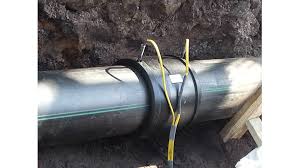Oct . 02, 2024 00:48 Back to list
Types of PVC Pipe Manufacturing Facilities and Their Characteristics
Types of PVC Pipe Factories
Polyvinyl Chloride (PVC) pipes have become essential components in various industries, ranging from plumbing to construction, due to their versatility, durability, and cost-effectiveness. The production of PVC pipes occurs in specialized factories designed to cater to the diverse requirements of different applications. This article explores the types of PVC pipe factories and what sets them apart.
1. Standard PVC Pipe Factories
Standard PVC pipe factories primarily focus on the production of commonly used pipes for residential and industrial applications. These factories utilize automated machinery to ensure precision and efficiency in manufacturing. The most popular products from these factories include schedule 40 and schedule 80 PVC pipes, which are used in plumbing, irrigation, and drainage systems. The manufacturing process involves mixing PVC resin, additives, and stabilizers, followed by extrusion into pipe shapes.
2. Specialty PVC Pipe Factories
Some factories specialize in producing high-performance PVC pipes tailored for specific industries, such as telecommunications and electrical applications. These specialty pipes often include features like enhanced insulation, fire resistance, and UV protection. Factories in this category may also engage in research and development to innovate new pipe designs and materials that meet stringent industry standards.
3. Recycled PVC Pipe Factories
type of pvc pipe factory

With sustainability becoming increasingly important, some PVC pipe factories focus on producing pipes from recycled materials. These factories collect waste PVC from various sources, process it, and then create new pipes. This not only helps in reducing plastic waste but also lowers production costs. Recycled PVC pipes are commonly used in drainage and non-potable water systems, making them an eco-friendly alternative.
4. Custom PVC Pipe Manufacturing Facilities
Custom PVC pipe factories provide tailored solutions for businesses with specific needs that standard products cannot fulfill. These facilities often work closely with clients to create pipes of various diameters, lengths, and thicknesses. Custom manufacturing allows for flexibility in designs, making it possible to accommodate unique installation requirements in different construction projects.
5. Export-Oriented PVC Pipe Factories
With globalization, many PVC pipe factories have shifted their focus to international markets. These export-oriented factories comply with international quality standards to ensure their products meet the requirements of foreign customers. They often invest in quality control and certifications, making them competitive in the global marketplace.
Conclusion
The diversity in PVC pipe factories reflects the growing demand for specialized products across various industries. Whether it’s standard production, specialty applications, recycled materials, or custom solutions, these factories are pivotal in supplying the necessary infrastructure for modern society. As industries continue to evolve, the PVC pipe manufacturing sector will likely adapt and innovate to meet emerging challenges and opportunities.
-
High-Quality PVC Borehole Pipes Durable & Versatile Pipe Solutions
NewsJul.08,2025
-
High-Quality PVC Perforated Pipes for Efficient Drainage Leading Manufacturers & Factories
NewsJul.08,2025
-
High-Quality PVC Borehole Pipes Durable Pipe Solutions by Leading Manufacturer
NewsJul.08,2025
-
High-Quality PVC Borehole Pipes Reliable PVC Pipe Manufacturer Solutions
NewsJul.07,2025
-
High-Quality UPVC Drain Pipes Durable HDPE & Drain Pipe Solutions
NewsJul.07,2025
-
High-Quality Conduit Pipes & HDPE Conduit Fittings Manufacturer Reliable Factory Supply
NewsJul.06,2025

